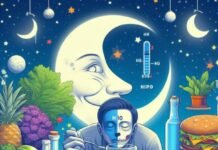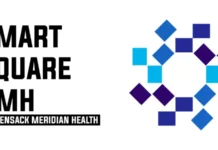Substance abuse is a common word where the topic-Drug Addiction is discussed. It starts physically and translates neurologically. Certain changes in the brain are created until the brain instructs the body to incessantly crave these drugs. Some of these drugs which are commonly abused include marijuana, tobacco, alcohol, hashish, cocaine, heroin, hallucinogens, inhalants, and prescription drugs used aside from the Doctor’s prescriptions. This abuse has resulted in several medical, psychological, and social problems-human suffering being the top of the list. There are also financial implications from the abused use of these substances. Hence, society seeks ways how to stop drug addiction. They have suggested treatment as one way.
Model of Change
To solve this concomitant problem, several models of change have been developed. The current model includes pre-contemplation, contemplation, preparation, action, and maintenance. The first of the five stages is when the abuser is not aware that abusing drugs is illegal, immoral, and bad. At the second stage, they have agreed that there is a change to be affected. The preparation stage involves planning effectively. In fact, some self-regulation would have started already. The action stage is the onset of implementing plans, the change plans are not infallible and can be revised. Then, the maintenance stage is where the changes are reviewed and strengthened. The new behavior of a drug-free addict becomes a lifestyle.
In this article, ten ways how to stop drug addiction will be highlighted. We hope this helps you or a loved one struggling with drug addiction.
-
Recognizing the need for help
The first step in approaching the problem is admitting that you need help. Seeing drug addiction as a problem makes one consider the need for change. When the addicted person stops seeing justifications for the continued use of these drugs, then they are ready to change. Admitting that there is a problem requires courage and no matter how broken one may feel doing that, they would be relieved after they’d done that. Talking to a therapist, or doctor will help if you are not ready to turn to friends or family.
-
Reflect on the problem
Some experts would advise you to list the pros and cons and consider why you would want to continue with drugs. The pros are majorly pleasure, satisfaction, or even pleasing the one who is forcing you to take these drugs, but there are several cons and they are catastrophic, such as loss of freedom, loss of concentration, loss of appetite for good food, a riotous relationship with loved ones, financial loss, loss of respect in the society, death, and so many disastrous consequences.
Think about how addiction has caused you to start the downward spiral, and how great your life could be with sobriety. Keeping a daily journal helps to plan by outlining goals, triggers, and motivators. Also, keeping a count of the number of drugs used and the duration between each use is a great way of informing oneself of the extent of drug use.
-
Individualized treatment
Various treatment plans exist. Hence, it is best to find out from the physician the kind of treatment that would suit the sufferer. There are inpatient and outpatient plans. Rehab houses have various ways of approaching this problem and individualized treatment is one of those ways. There are also other kinds of treatments such as family therapy, group therapy, peer support groups, chemical dependency counseling, etc. Certain professions struggle in particular ways, teacher burnout is common for instance.
-
Examination by a healthcare provider
Usually, diagnostic laboratory services are employed for the collection of specimens and testing for drugs and alcohol. The extent of the level of drugs in the body must be tested. Healthcare providers often endeavor to do these three things below:
Detoxification
This is the process of stopping the intake of these drugs. Medical supervision may become necessary to fully achieve detoxification.
Medication-assisted therapies
This is a form of therapy where medicine is used to control craving for those drugs and relieve the symptoms that come with withdrawal. Some of these medicines include:
- Methadone, naltrexone: to treat opioid addiction.
- Acamprosate for alcohol.
- Nicotine patch, gum to treat tobacco addiction.
Behavioral therapies
This is talk therapy that brings patients to the understanding of how their minds affect how they feel and behave. Therapy helps to build self-confidence and teaches the patient healthy coping mechanisms.
-
Appreciate the benefits of being treated
Knowing the effects of sobriety will enable you to appreciate it. Being sober enables you to regain the positive aspects of your life, such as financial stability, the joy of having loved ones around, a deeper sense of worth and freedom, and finding something that fulfills you.
-
Identify your Triggers
Knowing what leads you to the addiction could help you to avoid that until you can face it. Some common triggers include stress, social isolation, mental illness, emotions, etc.
-
Change your Environment
If a certain kind of environment would lead you to drugs, it is best to avoid that environment. The environment could in terms of the kinds of people, kinds of triggers present in those environments, and what you associate that environment with. Also, since it is possible to relapse after recovery, avoid these environments.
-
Exercise
The Exercise serves as a great distraction for persons suffering from drug addictions. It Exercise helps people sleep better, minimize cravings, enhance self-esteem, and do so many other healthy things to the physical and mental health of a person.
-
Make Peace with the Past
Your past condition would have caused a lot of damage, but you have to make peace with that. You may not be able to undo every damage, but you can move forward and be free.
-
Look Forward to becoming better in your new Life
Forward-looking is great for your mental health, and there is more to life than may seem on the surface.
Read Also: 5 Distinctive Features Of Green Horn Kratom




































































